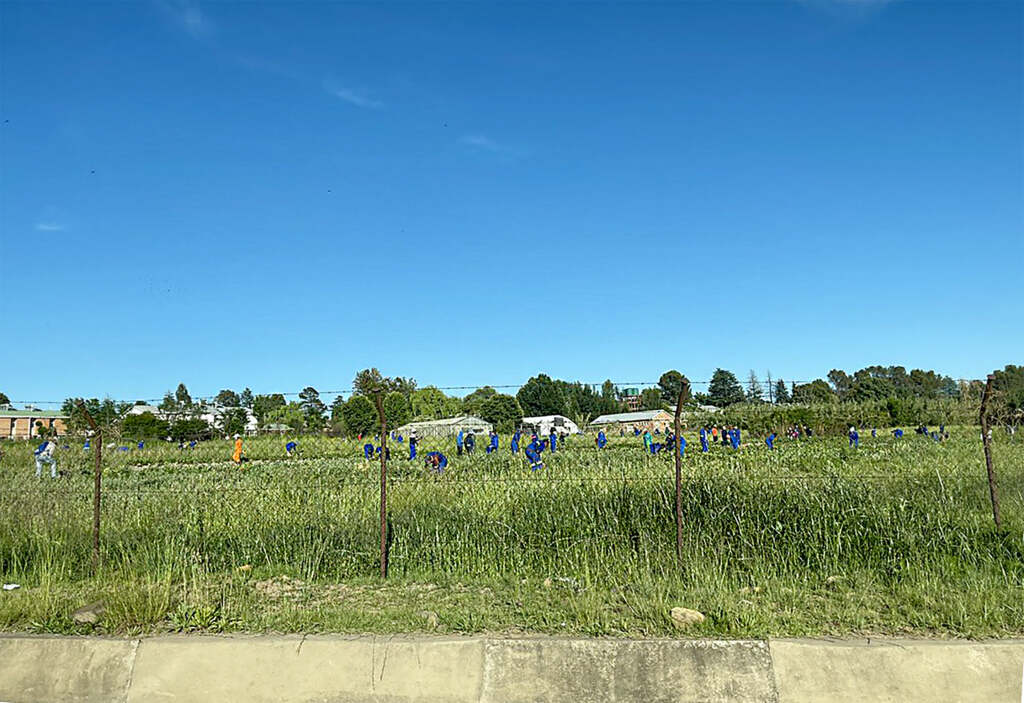- Scathing report uncovers shocking mismanagement
Staff Reporters
Lesotho Agricultural College (LAC) is teetering on the brink of disaster as a shocking audit report exposes a litany of failures, mismanagement, and negligence.
The damning report, unveiled by Auditor General (AG) ‘Mathabo Makenete and tabled in parliament last week, paints a grim picture of systemic dysfunction within the college.
LAC, a vital institution under the Ministry of Agriculture, Food Security, and Nutrition, stands accused of failing to uphold its mandate as a reputable higher education provider.
Without immediate intervention, the future of agricultural education in Lesotho hangs in the balance, condemned to a fate of neglect and decline.
The audit of LAC was conducted to assess the effectiveness of measures implemented in the administration of academic programs, the progress in management strategies, and adherence to standard operating procedures within educational facilities
LAC, operating under the Ministry of Agriculture, Food Security, and Nutrition, functions as a higher education institution offering various three-year diploma programs, including Agriculture, Agricultural Education, Forestry and Resource Management, Education, Home Economics Education, Agricultural Engineering, and Land and Water Management.
The audit aimed to pinpoint areas for improvement to facilitate decision-making processes and develop targeted strategies for enhancing the quality of academic programs and administrative functions at LAC.
It uncovered a multitude of deficiencies.
Most damning was the revelation that LAC’s academic programs lack accreditation.
Of the six diploma programs offered, only one – the Diploma in Agriculture – was submitted for accreditation in 2018. Shockingly, even this program failed to meet the necessary standards and was granted probationary accreditation, which lapsed in June 2021.
“Among the six (6) programmes offered by LAC, only the Diploma Programme in Agriculture was submitted for accreditation in 2018. However, the programme did not meet some of the standards specified in the minimum programme accreditation standards required by CHE,” read the audit report.
“LAC was, therefore, granted probationary accreditation for a period of two years ending in June 2021. This was done to allow LAC to address recommendations raised in the CHE Second Review for Diploma in Agriculture Programme, 2018 report. As a result, none of the programmes offered at LAC met accreditation standards,” the report stated bluntly, exposing a critical lapse in maintaining educational quality.
Further compounding these issues, LAC failed to conduct an institutional audit required by the Lesotho Qualification Framework (LQF) 2020. The planned audit for October 2021 was abandoned due to a lack of funds and the college’s failure to submit essential internal evaluation data.
This dereliction of duty prevented the Council on Higher Education (CHE) from performing its regulatory audit. The report recommended immediate action from LAC management to undertake the necessary internal evaluations and prepare for the audit.
In a shocking revelation, the audit report highlighted that LAC’s curriculum has not been reviewed since 2008.
“Failure to update the curriculum means the training provided does not keep pace with developments in the agricultural sector,” the report warned.
The reason for not reviewing the curriculum’ according to the report, was that it was not regarded as a priority in the plans by the Ministry of Agriculture Food Security and Nutrition.
“In the case where higher education curriculum is not modified, training provided may not adapt to diverse developments in the agricultural sector. I recommended that the LAC management review the curriculum every five years as stipulated by the Higher Education Act 2004,” read the audit report.
This neglect contradicts both national strategic plans and CHE mandates requiring regular curriculum updates every five years.
The Student Enterprise Projects (SEPs), essential for practical training and financial benefits, were discontinued due to depleted funds. Projects in areas such as rabbit and fish farming, dairy, and beef cattle have been left in limbo.
“The depletion of SEP funds has deprived students of vital practical experience,” the report noted. The audit urged LAC management to secure funding and ensure these projects were effectively monitored and revitalised.
Adding to the college’s woes, the long-promised transformation of LAC into a semi-autonomous institution remains stalled.
LAC’s strategic plan for 2016/2017 to 2020/2021 stated that LAC should be transformed and deregulated into Lesotho College of Agriculture.
In addition, the Savingram dated May 7, 2014, from the Government Secretary (GS) to the Principal Secretary (PS) of the Ministry of Agriculture, Food Security and Nutrition on “Establishment of LAC as a semi-autonomous Agricultural Education and Training Institution”, instructed the Law Office to draft the LAC Bill.
The LAC Bill, drafted in 2014, aimed to grant the college greater independence and improve educational quality, has not been passed. Political disruptions and inertia from the Ministry of Agriculture, Food Security, and Nutrition are to blame.
“As a result, LAC had remained a department within the Ministry of Agriculture, Food Security and Nutrition, and thus failed to reflect the capability of self-governance and development in the quality of education, which would not make it possible to transition from an agricultural school to an autonomous institute of higher learning,” the report lamented.
The audit also exposed the dire state of LAC’s infrastructure.
Laboratories, libraries, workshops, and greenhouses are dilapidated and unmaintained. Essential equipment and facilities are either outdated or absent altogether.
The report recommended that the Ministry ensure LAC receives an independent and sufficient budget to address these critical needs.
It read: “I recommended that the Ministry of Agriculture, Food Security, and Nutrition ensure that the LAC’s budget is independent and not allocated according to the discretion of the Ministry. The Ministry should endeavour to allocate a sufficient budget to LAC to ensure the maintenance and acquisition of facilities required to achieve its set goal.”




